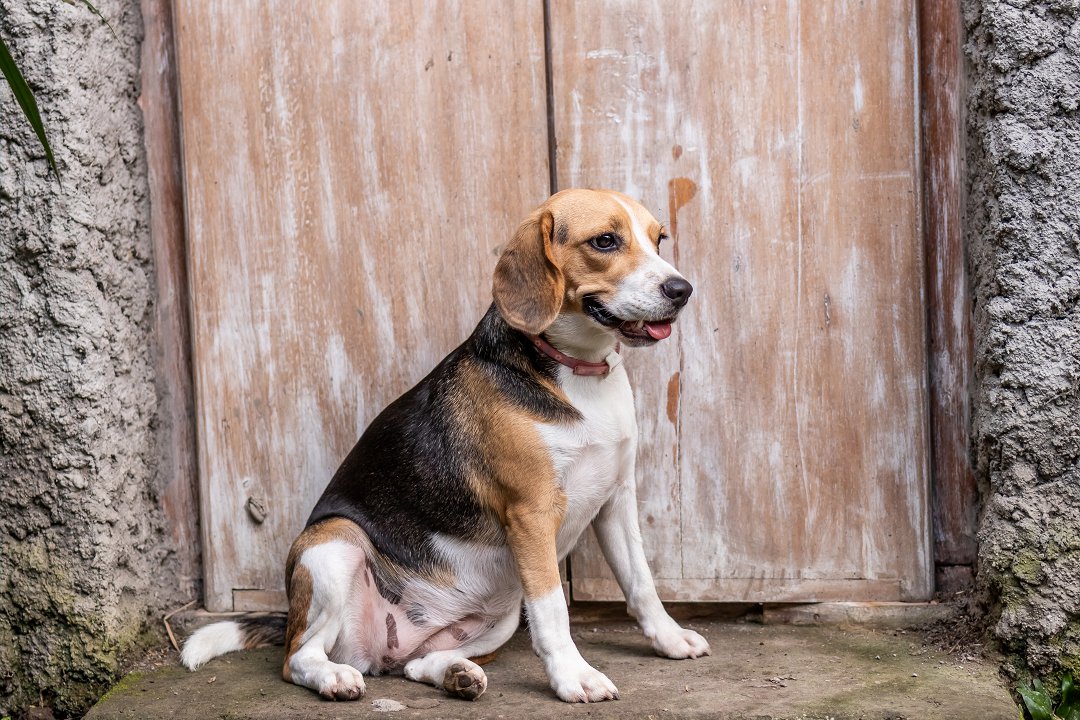Table of Contents
- 1 Introduction: Understanding the Beagle Temperament: Unraveling the Myth of Aggression
- 2 Unleashing the Secrets of Beagle Behavior: Debunking Aggression Stereotypes
- 3 Unleashing the Secrets of Beagle Behavior: Debunking Aggression Stereotypes
- 4 From Playful Pup to Lovable Companion: Nurturing a Well-Balanced Beagle
- 5 FAQs About: Can Beagles Be Aggressive?
Introduction: Understanding the Beagle Temperament: Unraveling the Myth of Aggression
Are you wondering, “Can Beagles be aggressive?” Well, let’s put your mind at ease. While some dog breeds have a reputation for aggression, Beagles are generally known for their friendly and sociable nature. Contrary to popular belief, aggression is not a defining characteristic of Beagle temperament. In fact, Beagles are often described as cheerful, gentle, and affectionate companions. However, like any other dog breed, Beagles can display aggression in certain situations. In this article, we will delve into the topic of Beagle aggression, debunking stereotypes and providing insights into their behavior. So, let’s unravel the truth about Beagles and their temperament.
Unleashing the Secrets of Beagle Behavior: Debunking Aggression Stereotypes
Beagle aggression is a topic that often sparks curiosity and concern among pet owners. It’s important to understand that aggression in Beagles is not a common trait, but rather a behavior that can be influenced by various factors. While Beagles are generally friendly and sociable, they can display signs of aggression towards other dogs, strangers, or even children and other pets. However, it’s crucial to note that aggression in Beagles can be managed and addressed through proper training and socialization. In the next section, we will explore the different signs of aggression in Beagles and provide insights on how to handle an aggressive Beagle. So, let’s dive deeper into the fascinating world of Beagle behavior.
Unleashing the Secrets of Beagle Behavior: Debunking Aggression Stereotypes
When it comes to the topic of beagle aggression, there are many misconceptions and stereotypes that surround this breed. However, it is important to understand that aggression in beagles is not a characteristic that is inherent to the breed. Beagles, like any other dog breed, can display aggressive behavior, but it is not their default temperament.
Understanding Beagle Temperament
- Beagles are known for their friendly and sociable nature. They are generally good-natured dogs that enjoy the company of their human family and other pets.
- Beagles are pack animals and thrive in a social environment. They are often described as being happy-go-lucky and are known for their cheerful disposition.
- Beagles are also known for their high energy levels and love for outdoor activities. Regular exercise and mental stimulation are essential to keep them happy and prevent behavioral issues.
Signs of Aggression in Beagles
- Growling, snarling, or baring teeth: These are clear signs of aggression and should not be ignored.
- Lunging or snapping: If a beagle displays these behaviors, it is important to address the underlying issue and seek professional help if needed.
- Resource guarding: Some beagles may become possessive over their food, toys, or other belongings, leading to aggressive behavior.
Training and Handling Aggressive Beagles
- Early socialization: Exposing your beagle to various people, animals, and environments from a young age can help prevent aggression issues.
- Positive reinforcement training: Using rewards and praise can be an effective way to teach your beagle appropriate behavior and discourage aggression.
- Seek professional help: If your beagle displays aggressive behavior that you are unable to manage on your own, it is important to consult a professional dog trainer or behaviorist.
Beagle Aggression Towards Other Dogs, Strangers, and Children
- Beagles are generally friendly towards other dogs, strangers, and children. However, individual temperament and past experiences can influence their behavior.
- Proper socialization and training can help prevent aggression towards other dogs, strangers, and children.
- Supervision is key: Always supervise interactions between your beagle and other dogs, strangers, or children to ensure everyone’s safety.
It is important to remember that aggression in beagles is not a breed-specific trait. With proper training, socialization, and handling, beagles can be well-behaved and friendly companions. In the next section, we will explore how to nurture a well-balanced beagle from a playful pup to a lovable companion.
From Playful Pup to Lovable Companion: Nurturing a Well-Balanced Beagle
When it comes to the Beagle temperament, there is a common misconception that they can be aggressive. However, this is not entirely true. Beagles are generally known for their friendly and playful nature. With proper training and socialization, they can grow up to be well-balanced and loving companions. Let’s explore how to nurture a well-behaved Beagle and debunk the aggression stereotypes.
Socialization is Key
One of the most important aspects of raising a well-balanced Beagle is socialization. Exposing your pup to different environments, people, and animals from an early age can help them develop positive associations and reduce the likelihood of aggressive behavior later on. Here are some key points to consider:
- Early exposure: Introduce your Beagle to various sights, sounds, and smells as soon as possible. This can include taking them on walks in different neighborhoods, visiting parks, and arranging playdates with other friendly dogs.
- Positive reinforcement: Reward your Beagle with treats, praise, and affection whenever they exhibit calm and friendly behavior towards new experiences. This will help them associate positive feelings with socialization.
- Training classes: Enroll your Beagle in obedience classes where they can learn basic commands and proper behavior around other dogs and people. This structured environment will provide them with valuable socialization opportunities.
Recognizing and Addressing Aggression
While Beagles are generally friendly, there may be instances where they display signs of aggression. It’s important to recognize these signs early on and address them appropriately. Here are some signs of aggression in Beagles:
- Growling and snarling: Beagles may growl or snarl when they feel threatened or uncomfortable. This can be a warning sign of aggression.
- Biting or snapping: Aggressive Beagles may resort to biting or snapping when they feel cornered or scared.
- Stiff body language: A Beagle displaying aggression may have a tense and stiff body posture, with their tail held high and ears pinned back.
If you notice any signs of aggression in your Beagle, it’s crucial to seek professional help from a certified dog trainer or behaviorist. They can assess the underlying causes of aggression and provide you with a tailored training plan to manage and modify the behavior.
Creating a Safe and Loving Environment
To foster a well-balanced Beagle, it’s essential to create a safe and loving environment for them. This includes providing them with regular exercise, mental stimulation, and plenty of social interaction. Here are some tips:
- Regular exercise: Beagles are an active breed and require daily exercise to prevent boredom and frustration, which can lead to aggressive behavior. Take them for walks, engage in interactive play sessions, and provide them with puzzle toys to keep their minds stimulated.
- Positive reinforcement: Use positive reinforcement techniques such as treats, praise, and play to reward good behavior. This will strengthen the bond between you and your Beagle and encourage them to exhibit positive behaviors.
- Consistency and routine: Beagles thrive in a structured environment. Establish a consistent daily routine for feeding, exercise, and training to provide them with a sense of security and stability.
By understanding the Beagle temperament and nurturing them in a positive and consistent manner, you can raise a well-balanced and loving companion. Remember, aggression in Beagles is not a predetermined trait but rather a result of various factors. With proper training, socialization, and a loving environment, you can help your Beagle become the best version of themselves.
FAQs About: Can Beagles Be Aggressive?
Can Beagles have aggressive behavior?
Yes, like any other breed, Beagles can exhibit aggressive behavior. However, it is important to note that aggression is not a defining characteristic of the breed. Beagles are generally known for their friendly and sociable nature.
What are the signs of aggression in Beagles?
Signs of aggression in Beagles may include growling, barking, snapping, lunging, or biting. These behaviors can be directed towards other dogs, strangers, children, or other pets. It is essential to address any aggressive behavior promptly and seek professional guidance if needed.
How can I handle an aggressive Beagle?
Handling an aggressive Beagle requires patience, consistency, and positive reinforcement training methods. It is crucial to establish yourself as the pack leader and provide clear boundaries and rules. Seeking the help of a professional dog trainer or behaviorist can also be beneficial in managing and modifying aggressive behavior.
Can Beagles be aggressive towards other dogs?
Yes, Beagles can display aggression towards other dogs, especially if they feel threatened or territorial. Proper socialization from an early age and controlled interactions with other dogs can help prevent or minimize aggressive behavior towards other canines.
Are Beagles aggressive towards strangers or children?
Beagles are generally friendly and sociable towards strangers and children. However, individual personalities and experiences can influence their behavior. Early socialization, positive reinforcement training, and supervised interactions with strangers and children can help ensure a well-balanced and non-aggressive Beagle.
Can Beagles be aggressive towards other pets?
Beagles may display aggression towards other pets, particularly if they have not been properly introduced or if they feel their territory is being invaded. Slow and controlled introductions, positive reinforcement training, and supervised interactions can help prevent or manage aggressive behavior towards other pets in the household.






Leave a Reply